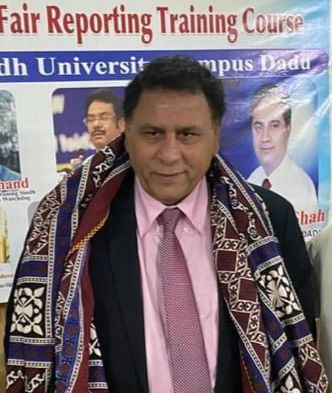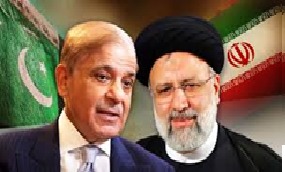REGIONAL STABILITY DEMANDS PEACE IN PAKISTAN: A CALL FOR UNITY AND PROGRESS
Regional stability in South Asia is intricately linked to peace in Pakistan. As a country with a significant geostrategic position, Pakistan’s internal conflicts and unrest had far-reaching consequences on the entire region. The need for peace within Pakistan is not only a domestic imperative but also a regional necessity for fostering stability and progress. The importance of peace in Pakistan in achieving regional stability, emphasizing the critical role of unity and progress play in this endeavor.
Pakistan’s internal conflicts including terrorism, political instability, and sectarian violence, have posed significant challenges to the country’s development. The ongoing tensions in regions like Balochistan, KPK and Kashmir have added complexity to the situation, exacerbating security concerns and hindering economic growth. The ripple effects of these internal conflicts are felt beyond Pakistan’s borders, impacting neighboring countries like Afghanistan and China. Therefore, addressing these internal issues is paramount to ensuring regional stability.
Terrorism has been a significant challenge for Pakistan, with the country being a victim of numerous terrorist attacks over the years. Extremist groups like the Taliban and Al- Qaeda have carried out bombings, shootings and other violent acts that have claimed countless lives and caused widespread fear and insecurity. The presence of terrorism has not only resulted in human losses but has also deterred foreign investment, hindered tourism and damaged infrastructure.
Unity among Pakistan’s diverse population is crucial for fostering peace and stability within the country. Pakistan is a melting pot of various ethnicities, languages and religious denominations making it vulnerable to internal divisions and conflicts. Promoting national unity and solidarity can help bridge these divides, creating a sense of belonging or shared purpose among all citizens. When different groups in Pakistan come together under a common vision of peace and progress the country stands stronger in the face of external threats and challenges.
Sectarian violence also poses a significant challenge to Pakistan’s development. The country is home to various religious and ethnic groups, each with its own set of beliefs and practices. Sectarian tensions between Sunni and Shia Muslims, as well as conflicts with other religious minorities, have resulted in violence. These divisions create a fractured society that hampers social cohesion and unity, making it difficult to implement inclusive development policies.
Economic development and social progress are fundamental pillars for sustaining peace in Pakistan. Poverty, lack of educational opportunities, limited access to healthcare are among the numerous root causes of instability in the country. Investing in infrastructure, education, healthcare and employment opportunities, Pakistan can uplift its population and mitigate the conditions that breed unrest and conflict. Economic prosperity not only enhances the well-being of citizens but also paves the way for sustained stability in the region.
International actors can contribute to peacebuilding in Pakistan by providing financial assistance, technical expertise and logistical support for peacekeeping operations. Foreign aid and investment can help strengthen Pakistan’s economy, improve social services, and reduce poverty all of which are key drivers of conflict and insecurity. Additionally, international organizations such as the United Nations and the World Bank can offer valuable resources and technical assistance to support peacebuilding initiatives in Pakistan. Working together with international partners, Pakistan can leverage external support to address its internal challenges and build a more peaceful and prosperous society.
Achieving peace in Pakistan requires not only domestic efforts but also international co-operation or support. Neighboring countries as well as global powers play a crucial role in facilitating dialogue, mediation and conflict resolution in Pakistan. Regional organizations like the South Asian Association for Regional Cooperation (SAARC) and the Shanghai Cooperation Organization (SCO) can serve as platforms for promoting peace and stability in Pakistan through diplomatic initiatives, economic partnership and security cooperation. Engaging with the international community Pakistan can garner support for its peace-building endeavors contribute to regional security.
Regional stability demands peace in Pakistan, emphasizing the interconnectedness between internal harmony and external security. Through unity, progress and international cooperation, Pakistan can overcome its internal challenges emerge as a beacon of peace and stability in South Asia. Prioritizing peace within its borders, Pakistan not only secures its own future but also contributes to the peace and prosperity of the entire region. It is imperative for all stakeholders both domestic and international, to work together towards a peaceful stable Pakistan, paving the way for a brighter or more secure future for all.




